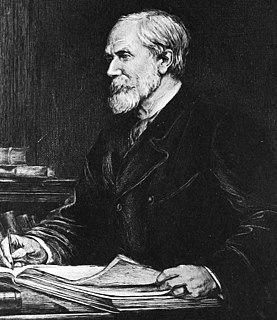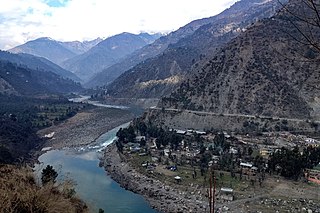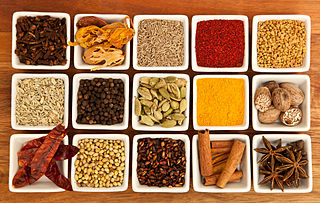Related Research Articles

Sir Henry Yule was a Scottish Orientalist and geographer. He published many travel books, including translations of the work of Marco Polo and Mirabilia by the 14th-century Dominican Friar Jordanus. He was also the compiler of a dictionary of Anglo-Indian terms, the Hobson-Jobson, with Arthur Coke Burnell.

The Times of India, also known by its abbreviation TOI, is an Indian English-language daily newspaper and digital news media owned and managed by The Times Group. It is the third-largest newspaper in India by circulation and largest selling English-language daily in the world. It is the oldest English-language newspaper in India, and the second-oldest Indian newspaper still in circulation, with its first edition published in 1838. It is nicknamed as "The Old Lady of Bori Bunder", and is an Indian "newspaper of record".
Indian English (IE) is a group of English dialects spoken in India and among the Indian diaspora. English is used by the Indian government for communication, along with Hindi, as enshrined in the Constitution of India. English is also an official language in seven states and seven union territories of India, and the additional official language in seven other states and one union territory. Furthermore, English is the sole official language of the Indian Judiciary, unless the state governor or legislature mandates the use of a regional language, or if the President of India has given approval for the use of regional languages in courts.

Kedgeree is a dish consisting of cooked, flaked fish, boiled rice, parsley, hard-boiled eggs, curry powder, butter or cream, and occasionally sultanas.

Shashi Tharoor is an Indian former international civil servant, diplomat, Bureaucrat and politician, writer and public intellectual who has been serving as Member of Parliament for Thiruvananthapuram, Kerala, since 2009. He is the Chairman of the Standing Committee on Chemicals and Fertilizers. He was formerly Under-Secretary General of the United Nations and unsuccessfully ran for the post of Secretary-General in 2006. Founder-Chairman of All India Professionals Congress, he formerly served as Chairman of the Parliamentary Standing Committee on External Affairs and on Informational Technology.
Hobson-Jobson: A Glossary of Colloquial Anglo-Indian Words and Phrases, and of Kindred Terms, Etymological, Historical, Geographical and Discursive is a historical dictionary of Anglo-Indian words and terms from Indian languages which came into use during the British rule in India.

The Chenab River is a major river that flows in India and Pakistan, and is one of the 5 major rivers of the Punjab region. It is formed by the union of two headwaters, Chandra and Bhaga, which rise in the upper Himalayas in the Lahaul region of Himachal Pradesh, India. The Chenab flows through the Jammu region of Jammu and Kashmir, India into the plains of Punjab, Pakistan, before ultimately flowing into the Indus River.

Anglo-Indian cuisine is the cuisine that developed during the British Raj in India. It was brought to England in the 1930s by the Veeraswamy restaurant, followed by a few others, but not by typical Indian restaurants. The cuisine introduced dishes such as kedgeree, mulligatawny and pish pash to English palates. One of the few Anglo-Indian foods that has had a lasting impact on English cuisine is chutney.

Navakal is a Marathi daily newspaper. It is based in Mumbai, the capital of the Indian state of Maharashtra. Its owner editor is Nilkanth Khadilkar. Robin Jeffery has called Khadilkar one of the most remarkable and self-reliant owners of small newspapers. In the context of pre-independence Mumbai, it has been described as a Congress paper, contemporarily it has been considered to be aligned with the Shiv Sena. In 1999 Nava Kaal had a circulation share of 8% and a readership share of 27% for all of Maharashtra, in the 1950s Nava Kaal's circulation under Nilkanth Khadilkar's father had fallen to 800 and the paper was nearly closed.

Ramnath Goenka was an Indian newspaper publisher. He launched The Indian Express in 1932 and created the Indian Express Group with various English and regional language publications. In 2000, India Today magazine, named him amongst their list of "100 People Who Shaped India". The Ramnath Goenka Excellence in Journalism Awards, named after Ramnath Goenka, are one of the awards in India in the field of journalism.
Boxwallah is a term with at least two vastly contrasting meanings: one denoting a street peddler in British India and the other denoting an elite corporate executive, chiefly in the city of Calcutta, in early postcolonial India.
The role and scale of British imperial policy during the British Raj on India's relative decline in global GDP remains a topic of debate among economists, historians, and politicians. Some commentators argue the effect of British rule was negative, and that Britain engaged in a policy of deindustrialisation in India for the benefit of British exporters which left Indians relatively poorer than before British rule. Others argue that Britain's impact on India was either broadly neutral or positive, and that India's declining share of global GDP was due to other factors, such as new mass production technologies or internal ethnic conflict.

Sunanda Pushkar was an Indian businesswoman and the wife of former International diplomat serving under the UN and politician Shashi Tharoor. She was a sales director in the Dubai-based TECOM Investments, and a co-owner of the India-based Rendezvous Sports World (RSW), a cricket franchise in the Indian Premier League.
In the Indian film industry, the muhurat shot or muhurtam shot is the first shot of a film marking the commencement of the principal photography. It is preceded by a pooja. Muhurtam is a word from the Rig Veda and means moment. Contemporarily it means "auspicious moment"

Inglorious Empire: What the British Did to India, first published in India as An Era of Darkness: The British Empire in India, is a work of non-fiction by Shashi Tharoor, an Indian politician and diplomat, on the effects of British colonial rule on India. The book has received mixed reviews. In 2019, Tharoor won the 2019 Sahitya Akademi Award and the 2017 Ramnath Goenka Excellence in Journalism Award.

Aleph Book Company is an Indian publishing company. It was founded in May 2011 by David Davidar, a novelist, publisher and former president of Penguin Books Canada, in association with R. K. Mehra and Kapish Mehra of Rupa Publications. The headquarters of the company is situated in New Delhi.

The Ramnath Goenka Excellence in Journalism Awards are one of the awards in India in the field of journalism. Named after Ramnath Goenka, the awards have been held annually since 2006, with the 12th edition being held in 2017. The awards are given for both print journalism as well as broadcast journalism, with a total of 25 different prizes being awarded in 2017 for excellence in journalism during 2016.

During a debate at the Oxford Union on 28 May 2015, the Indian Member of Parliament, diplomat and writer Shashi Tharoor delivered a speech supporting the motion "Britain owes reparations to her former colonies". Tharoor was the seventh speaker in the debate, the final speaker from the proposition, and spoke for about fifteen minutes. While criticising the opposition, he argued that British colonial rule damaged the Indian economy.
Kimkhwab is an ancient Indian brocade art of weaving ornate cloth with gold, silver, and silk yarns. Kinkhwab is a silk damasked cloth with an art of zar-baft, The weave produces beautiful floral designs that appear embroidered on the surface of the fabric. it was also known as puspapata or cloth with woven flowers.
References
- ↑ "Medium for the Masses: How India's Local Newspapers Are Winning Rural Readers". India Knowledge@Wharton. University of Pennsylvania: Wharton School of the University of Pennsylvania. 2010-01-14. Retrieved 19 February 2012.
- ↑ Tharoor, Shashi (2010-11-01). "WHAT THE HACK!". www.outlookindia.com. New Delhi: The Outlook Group. Archived from the original on 5 January 2013. Retrieved 19 February 2012.
- ↑ Vir Bala Aggarwal (1 January 2006). Essentials Of Practical Journalism. Concept Publishing Company. pp. 19–. ISBN 978-81-8069-251-2 . Retrieved 20 February 2012.
- ↑ Hena Naqvi (1 January 2007). Journalism And Mass Communication. Upkar Prakashan. pp. 173–. ISBN 978-81-7482-108-9 . Retrieved 20 February 2012.
- ↑ Allen's Indian mail, and register of intelligence for British and foreign India, China, and all parts of the East. 1851. pp. 607–. Retrieved 20 February 2012.
- ↑ Henry Yule; A. C. Burnell; William Crooke (11 January 1996). A glossary of colloquial Anglo-Indian words and phrases: Hobson-Jobson. Curzon Press. pp. 930–. ISBN 978-0-7007-0321-0 . Retrieved 20 February 2012.
- ↑ Deepak Gupta (2005). Handbook Of Advertising Media And Public Relations. Mittal Publications. pp. 452–. ISBN 978-81-7099-987-4 . Retrieved 20 February 2012.